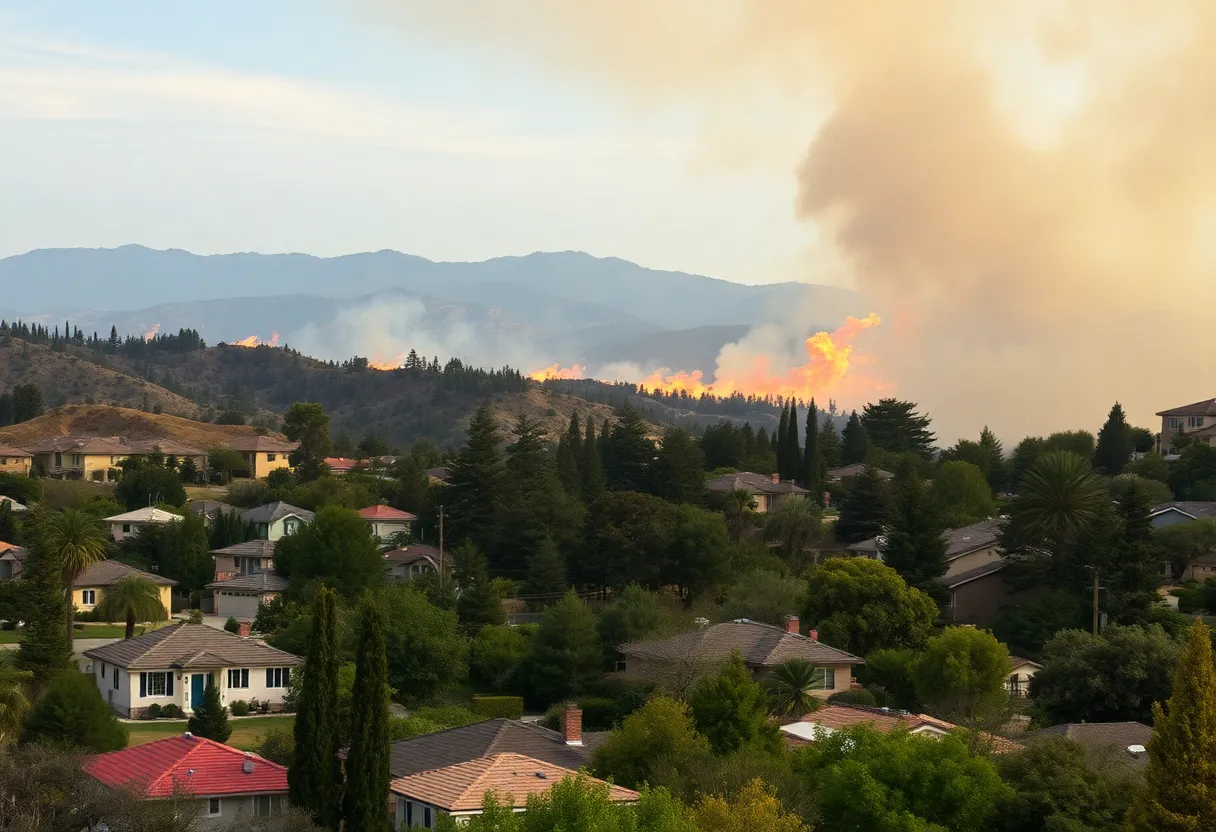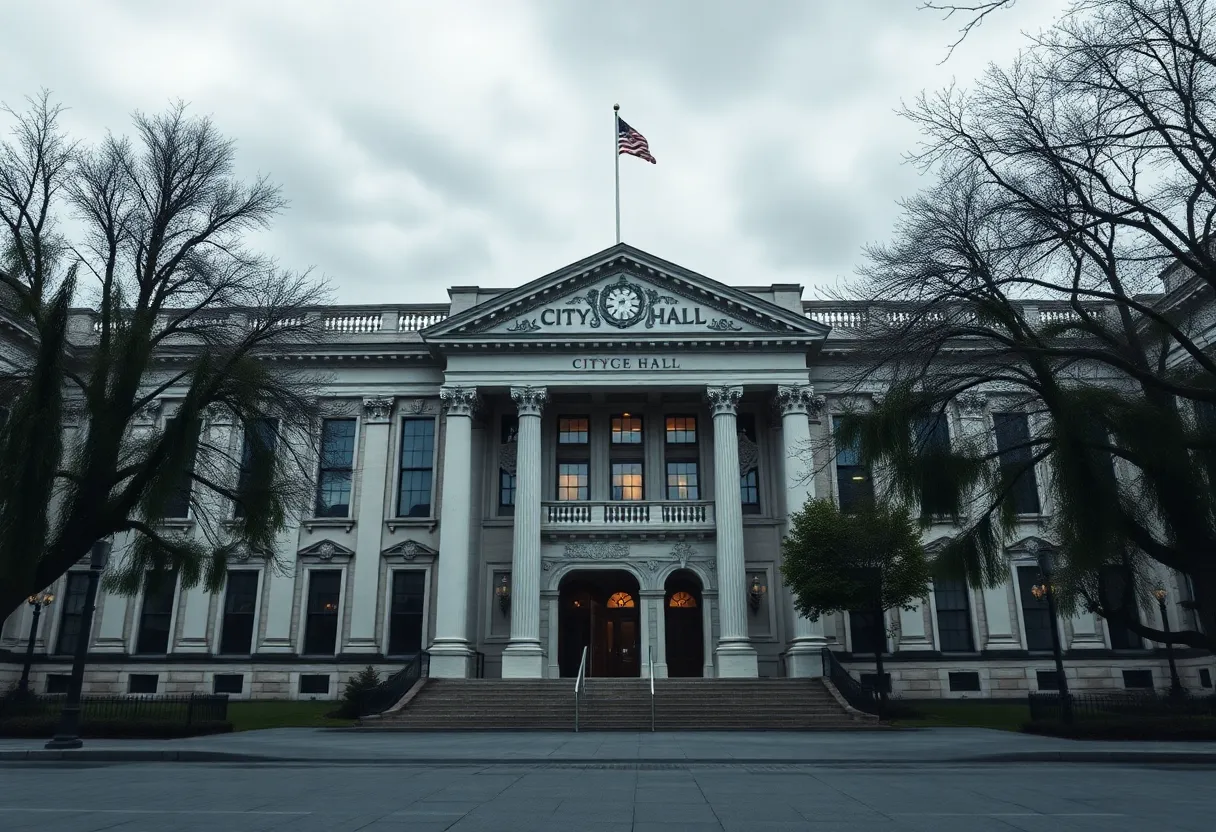California, August 20, 2025
News Summary
California’s new emissions reporting legislation, requiring large corporations to disclose greenhouse gas emissions and climate-related financial risks, is facing a legal challenge by the U.S. Chamber of Commerce. Despite a ruling by Judge Otis D. Wright II dismissing claims of First Amendment violations, the Chamber seeks to pause the law’s implementation. The upcoming trial is set for October 2026 as various states consider similar legislation, reflecting a growing trend towards corporate climate accountability.
California’s new emissions reporting laws continue to face legal challenges as the U.S. Chamber of Commerce, along with several other business organizations, has filed an appeal aiming to pause the implementation of these regulations. This follows a decision by U.S. District Judge Otis D. Wright II, who ruled on August 13, 2023, against the Chamber’s bid for a preliminary injunction.
The new laws, known as Senate Bill 253 and Senate Bill 261, are designed to boost transparency regarding corporate contributions to climate change. Senate Bill 253 will require any business with annual revenues exceeding $1 billion to disclose their greenhouse gas emissions starting in 2027. Meanwhile, Senate Bill 261 necessitates companies with revenues above $500 million to report climate-related financial risks every two years, beginning in January 2026. Together, these measures will impact approximately 2,600 companies operating in California.
Judge Wright determined that these laws do not infringe upon the First Amendment rights of corporations, a claim that the U.S. Chamber of Commerce had argued extensively. The judge acknowledged that while the laws do compel commercial speech, they serve significant governmental interests, including reducing emissions and providing investors with essential climate-related information.
The California Attorney General’s Office welcomed the decision, indicating a strong commitment to defend the statewide climate disclosure laws against ongoing challenges. This legal battle began in early 2024 when the Chamber initially filed suit against the California Air Resources Board, aiming to declare the laws “null and void.” Prior attempts by the Chamber to block the laws’ implementation through the courts have been unsuccessful.
A trial concerning these ongoing legal issues has been scheduled for October 2026, indicating that the dispute is far from resolved. The laws were enacted by California Governor Gavin Newsom on October 7, 2023, pushing forward the state’s aggressive climate agenda.
In addition to California’s initiative, similar emissions disclosure legislation is gaining traction in other states. Recently, a New York Senate panel advanced a comparable proposal that could pave the way for a nationwide reporting requirement when combined with California’s laws. States like Colorado, Illinois, and New Jersey have all introduced their versions of corporate climate disclosure legislation.
On a federal level, the U.S. Securities and Exchange Commission has recently decided to abandon its legal defense of rules requiring public companies to disclose their greenhouse gas emissions, amidst increasing legal challenges. Moreover, the Trump administration has been noted for its efforts to repeal various climate regulations and promote fossil fuel production, showcasing the ongoing tensions surrounding climate policy at both state and federal levels.
To further support these initiatives, California has introduced Senate Bill 285, intended to ensure that carbon offsets utilized in emissions reporting adhere to established standards. This aims to enhance tracking and accountability concerning carbon reduction goals by 2045.
With climate change becoming a pressing concern globally, these developments reflect a larger shift in the dialogue surrounding corporate responsibility and environmental stewardship, establishing a landscape where emissions transparency is becoming increasingly mandatory.
FAQ Section
What are the new emissions reporting laws in California?
California’s new emissions reporting laws, Senate Bill 253 and Senate Bill 261, require large corporations to disclose greenhouse gas emissions and report climate-related financial risks biannually.
Who is impacted by these laws?
Approximately 2,600 companies with revenues exceeding $500 million (for SB 261) or $1 billion (for SB 253) will be required to comply with these regulations.
What was the judge’s ruling regarding the First Amendment?
Judge Otis D. Wright II ruled that the laws did not violate the First Amendment rights of corporations, stating they promote significant governmental interests such as reducing emissions.
What are the next steps in the legal process?
A trial is scheduled to take place in October 2026, indicating that the dispute surrounding these laws is ongoing.
Are similar laws being discussed in other states?
Yes, New York has advanced a similar emissions disclosure bill, and comparable legislation is being introduced in Colorado, Illinois, and New Jersey.
| Bill | Requirements | Effective Date | Impact |
|---|---|---|---|
| Senate Bill 253 | Disclosure of greenhouse gas emissions for businesses with revenues > $1 billion | 2027 | Affects approx. 2,600 companies |
| Senate Bill 261 | Biannual reporting of climate-related financial risks for businesses with revenues > $500 million | January 2026 | Affects approx. 2,600 companies |
Deeper Dive: News & Info About This Topic
- Bloomberg Law: Businesses Eye Appeal to Stop California Emissions Reporting
- Courthouse News: Big Business Strikes Out in Bid to Duck California Emissions Disclosure
- Politico: California is Still the State to Beat on Corporate Emissions
- Vinson & Elkins: California Provides Flexibility on Greenhouse Gas Emissions Reporting Law
- Independent: California Leads with a Radical Emissions Disclosure Bill
- Wikipedia: Corporate Environmental Responsibility

Author: Anaheim Staff Writer
The Anaheim Staff Writer represents the experienced team at HEREAnaheim.com, your go-to source for actionable local news and information in Anaheim, Orange County, and beyond. Specializing in "news you can use," we cover essential topics like product reviews for personal and business needs, local business directories, politics, real estate trends, neighborhood insights, and state news affecting the area—with deep expertise drawn from years of dedicated reporting and strong community input, including local press releases and business updates. We deliver top reporting on high-value events such as major conventions at the Anaheim Convention Center, including NAMM and VidCon, exciting games at Angel Stadium and Honda Center, and developments at Disneyland Resort Our coverage extends to key organizations like the Anaheim Chamber of Commerce and Visit Anaheim, plus leading businesses in hospitality, entertainment, and innovation that power the local economy As part of the broader HERE network, including HERECostaMesa.com, HEREHuntingtonBeach.com, HERESantaAna.com, and HERELosAngeles.com, we provide comprehensive, credible insights into Southern California's dynamic landscape.




